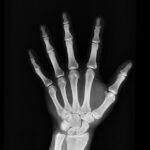





Welcome back to our captivating journey through the power of collagen! In Part 1, we explored collagen’s significance in maintaining tissue integrity, while Part 2 revealed its transformative role in skin health.
In Part 3, we will uncover the remarkable connection between collagen and joint health. Join us as we delve into how collagen supports joint flexibility, maintains cartilage health, and promotes overall joint well-being.
Joint Flexibility and Collagen
Collagen is a vital component in maintaining the flexibility and mobility of our joints. It provides structural support to the cartilage, the smooth connective tissue that covers the ends of bones within joints. Healthy cartilage allows for smooth movement, reducing friction and preventing discomfort or pain.
As we age and collagen production naturally declines, the cartilage in our joints may start to deteriorate. This can lead to joint stiffness, reduced flexibility, and an increased risk of joint-related issues.
By supporting collagen levels and joint health, we can promote flexibility and improve joint function. Here are some strategies to consider:
Exercise
Engaging in regular physical activity, such as low-impact exercises and strength training, can help maintain joint flexibility. Activities like swimming, yoga, and cycling are gentle on the joints while promoting strength and flexibility.
Collagen Supplements
Collagen supplements, available in various forms like capsules, powders, or liquid, can provide additional support for joint health. These supplements contain bioactive collagen peptides that can be easily absorbed and utilized by the body to support cartilage health.
Balanced Diet
Consuming a well-balanced diet rich in nutrients that support collagen synthesis and joint health is crucial. Include foods high in antioxidants, omega-3 fatty acids, vitamin C, and sulfur, such as leafy greens, fatty fish, nuts, and citrus fruits.
Weight Management
Maintaining a healthy weight reduces the burden on the joints, especially weight-bearing joints like the knees and hips. Excess weight can put additional stress on the joints, leading to increased wear and tear.
Cartilage Health and Collagen
Collagen plays a significant role in maintaining the health and integrity of cartilage within our joints. Cartilage acts as a cushion between bones, providing shock absorption and allowing smooth joint movement.
Collagen provides structure and strength to the cartilage, helping it withstand the stresses and strains of daily activities. It also contributes to the cartilage’s ability to retain water, which is essential for its elasticity and lubrication.
To support cartilage health and preserve joint function, consider the following approaches:
Hydration
Staying adequately hydrated is essential for cartilage health. Drinking enough water helps maintain the cartilage’s water content, promoting its elasticity and lubricating properties.
Omega-3 Fatty Acids
Including foods rich in omega-3 fatty acids, such as fatty fish (salmon, mackerel), flaxseeds, and chia seeds, can help reduce inflammation and support cartilage health.
Glucosamine and Chondroitin
These supplements are commonly used to support joint health and cartilage integrity. Glucosamine helps stimulate the production of cartilage-building molecules, while chondroitin supports the elasticity and resilience of cartilage.
Protecting Joints
Engaging in activities that minimize joint impact and injury can help preserve cartilage health. Using proper body mechanics, wearing protective gear during sports, and avoiding repetitive high-impact activities can reduce the risk of joint damage.
Overall Joint Well-being
Collagen’s impact on joint health goes beyond cartilage support. It also contributes to the overall well-being of joints, including ligaments, tendons, and other connective tissues.
Collagen provides the necessary structural support to these tissues, helping to maintain their integrity and function. It promotes the strength and flexibility of ligaments, which connect bones, and tendons, which connect muscles to bones.
To support overall joint well-being and optimize collagen’s benefits, consider the following practices:
Warm-up and Stretching
Prior to physical activity, engage in warm-up exercises and stretching routines. This helps prepare the joints, ligaments, and tendons for movement and reduces the risk of injury.
Proper Posture and Ergonomics
Maintaining good posture and using ergonomic equipment and furniture can reduce stress on the joints. Proper alignment minimizes joint strain and supports overall joint health.
Rest and Recovery
Allow for adequate rest and recovery periods between activities. This allows the joints, ligaments, and tendons to repair and rejuvenate, reducing the risk of overuse injuries.
If you have specific joint concerns or conditions, seek guidance from healthcare professionals such as orthopedic specialists or physical therapists. They can provide tailored advice, exercises, and treatments to support your joint health.
Conclusion
In this final part of our article, we explored the remarkable impact of collagen on joint health. We discovered how collagen supports joint flexibility, maintains cartilage health, and promotes overall joint well-being. By implementing strategies to support collagen levels and joint health, such as exercise, collagen supplements, a balanced diet, and proper joint protection, we can optimize joint function and preserve their vitality.
As we conclude this captivating journey through the power of collagen, we hope you have gained valuable insights into the multi-faceted role of collagen in our bodies. From maintaining tissue integrity to promoting youthful skin and strong joints, collagen truly holds the key to unlocking our well-being. Embrace collagen management as an essential aspect of your overall health and enjoy the benefits it brings to your life.
Thank you for joining us on this enlightening exploration. May your journey with collagen be one of vibrancy, vitality, and lasting wellness.
© 2023 Tanushree Jain
